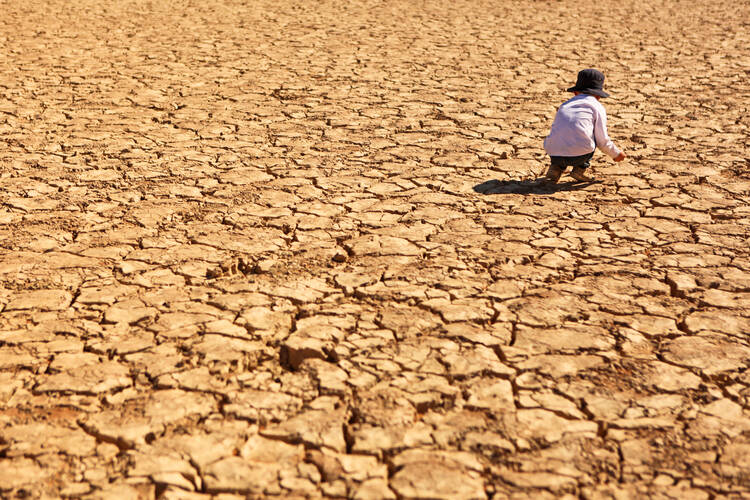Review: Mary Robinson channels Pope Francis and Laudato Si’ with ‘Climate Justice’
In the United States, entrenched partisan anti-science rhetoric on climate change tends to obfuscate thoughtful work on how environmental change disproportionately burdens the poor. And the mind-boggling scale of climate change—a “planetary” problem, with massive distributed effects—means that tomes on this topic can be draining, rarely what one might choose to put on a bedside table.
In Climate Justice, Mary Robinson admirably succeeds in avoiding both of those perils. Born of years of leadership and listening, this slim volume communicates stories of “climate witnesses” in their own words—alongside moral insights and viable policy recommendations. A former president of Ireland with substantial experience in development policy, Robinson is uniquely situated to amplify the stories of people responding to the vagaries of climate change in ways that might support actions elsewhere or provide hope.
With Climate Justice, Mary Robinson is uniquely situated to amplify the stories of people responding to the vagaries of climate change in ways that might support actions elsewhere or provide hope.
Each chapter tells the story of distinct issues facing climate witnesses in specific locations around the world, while also evoking key moral textures and possible ways forward. There are stories about families working to maintain livelihoods after the collapse of mining communities in Alberta, Canada; women advocating for indigenous land rights and adaptation support from Africa to Europe; and Pacific Island political leaders and native Alaskans strategizing about community relocation.
The conclusion narrates Robinson’s initial dismay at the Trump administration’s withdrawal from the Paris climate agreement—and how that quickly became delight and hope when international leaders and U.S. governors and mayors redoubled their commitments to action, “with or without the government of the United States.” Here and throughout the volume, I could not help but ponder the alignment with another morally attuned advocate, Pope Francis. Like the pope in “Laudato Si’,” Robinson suggests that “to deal with climate change we must simultaneously address the underlying injustice in our world and work to eradicate poverty, exclusion, and inequality.”
Climate Justice is diversely, refreshingly human. The data is accurate, the diagnoses far from naïve, and yet it manages to generate pragmatic hope: Responses are possible, and efficacy is not limited to elite corridors of power. This gem of a book can be read in quick bursts or one fell swoop and is well suited for both bedside table and academic syllabi.
This article also appeared in print, under the headline “Hope for Our Blue Planet,” in the January 7, 2019, issue.










